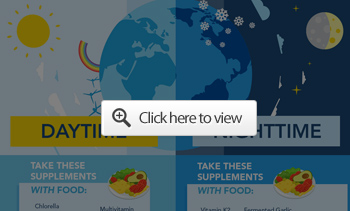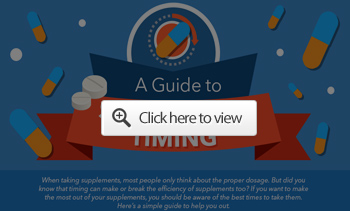Why This One Herb Could Help With Diabetes, Hypertension
Indigenous cultures have used traditional herbal medicine for the treatment and prevention of diseases for thousands of years.1 The bioactive compounds found in medicinal plants have gone on to become primary points of research for drug therapies2 and have been replicated in the lab by Big Pharma.3
Holy basil, or tulsi, (Ocimum sanctum) is a medicinal herb favored in Ayurvedic medicine because of the vast health benefits it offers.4 It has been widely used in Southeast Asia and today is making a name for itself in Western medicine.
Tulsi is a powerful adaptogenic herb with known antibacterial, antifungal, anti-inflammatory, analgesic and antioxidant properties. There are several products utilizing tulsi available on the market today, including tea, extract and essential oil.5
Holy basil is a flowering plant in the mint family. It is sacred in Hinduism because of its association with Lord Vishnu, one of the principal deities of the religion6 In addition to medicinal uses, tulsi is also widely grown and used as a culinary herb.7 The peppery mint flavor strengthens and concentrates during cooking. Outside of its native region, it is considered an invasive species.
Tulsi can grow up to 5 feet in the intense heat of India but normally reaches up to only 2 feet in more temperate areas.8 It is a short-lived perennial shrub or annual plant depending on the region. By comparison, sweet basil is a popular culinary herb that grows in many areas and can be cultivated indoors. Although they are from the same genus, they are distinctly different in taste and appearance.9
Tulsi May Help Lower Risk of Diabetes and High Blood Pressure
Diabetes increases your risk of high blood pressure10 and vice versa.11 There is evidence that holy basil influences blood glucose and may help reduce high blood pressure.
In 1996, researchers studied the effect of holy basil on the blood glucose of albino rats.12 Their results indicated that administration of holy basil could reduce blood glucose after fasting and eating. Reduction in urine glucose levels followed the same trend.
These results are similar to those found in the many years of using holy basil in ayurvedic interventions for diabetes. A review of ayurvedic literature13 revealed many studies in which the practice of using holy basil included treatment for diabetes, hepatitis, cardiovascular diseases and infectious diseases.
More recently, scientists reviewed several plants with antidiabetic potential and bioactive compounds, including holy basil.14 The leaves of the plant contain eugenol, ursolic acid, carvacrol and linalool. Tulsi is also rich in vitamins, minerals, chlorophyll and other phytonutrients, including flavonoids, saponins and triterpenoids.
The leaves are reported to stimulate insulin secretion and reduce the serum levels of cortisol and glucose in an animal model.15 It also demonstrated a dose-dependent hypoglycemic effect in another animal study.16 In a database search of human studies,17 results showed tulsi was effective at reducing fasting blood glucose and reduced cholesterol levels in patients over 40 years without changing the overall lipid profile.
Holy basil has anti-inflammatory properties, which may help to reduce blood pressure.18 One study19 in 2016 showed holy basil and cloves could reduce systolic and diastolic blood pressure in an animal model when compared against the control group.
Tulsi May Help the Appearance of Skin and Teeth
Tulsi can benefit the skin in several ways.20 It can help reduce eczema and psoriasis and treat staph infections on the skin. The essential oil has antifungal and antibacterial activity.
As mentioned, the leaves have ursolic acid, a favorite of the cosmetic industry as it helps to remove wrinkles and improve elasticity. Ayurvedic medicine uses tulsi in a topical application with black pepper to treat ringworm and as a paste on the skin to help reduce irritation of insect bites.
Within ayurvedic medicine practice21 tulsi is called the “incomparable one,” “mother medicine of nature,” and the “queen of herbs.” The reference is to the wide range of health benefits practitioners have found. This includes the treatment of skin diseases, ringworm and a variety of other health conditions affecting the respiratory, digestive, circulatory and neurological systems.
Holy basil extract may also help the appearance of your teeth and gums. In one study22 published in 2014, researchers compared a mouthwash made of holy basil against sterile water and chlorhexidine. They found the holy basil extract inhibited periodontal pathogens at various concentrations with the same effectiveness as chlorhexidine.
The researchers suggest that the antiplaque effect may have prophylactic benefits. However, ayurvedic practitioners warn against chewing the leaves.23 The leaves contain high amounts of mercury and iron which are released when you chew them.
They are also highly acidic. Practitioners recommend starting your day with two to three fresh leaves on an empty stomach. However, on a daily basis, this can cause discoloration and abnormal wear and tear on the tooth enamel.
Protects Against Infections
A review in the Journal of Ayurveda and Integrative Medicine24 called tulsi an “herb for all reasons,” noting that it’s effective against “a range of human and animal pathogens” with broad-spectrum antimicrobial activity, even suggesting it may be considered for a hand sanitizer, water purifier or for wound healing.
Tulsi is also one of the herbs in Ayush Kwath, an Ayurvedic herbal formula recommended by the government of India to boost immunity and combat COVID-19.25 At the conclusion of a literature review of Ayush Kwath, the researchers suggested that:
“Ayush Kwath due to its immune-modulatory, antiviral, antioxidant, anti-inflammatory, anti-platelet, anti-atherosclerotic, hepato-protective, reno-protective properties; seems to be effective in immuno-regulation for controlling viral infections like COVID-19.”
Writing in a published paper in Nature Plants in 2017, researchers suggest26 “While the plant kingdom continues to serve as an important source for chemical entities supporting drug discovery, the rich traditions of herbal medicine developed by trial and error on human subjects over thousands of years contain invaluable biomedical information just waiting to be uncovered using modern scientific approaches.”
The use of traditional herbal medicine for the treatment of respiratory ailments has taken on renewed interest during the pandemic. Herbal medicine is a powerful arsenal in the prevention and treatment of respiratory ailments like colds, flu and COVID-19. In China, herbal treatment is recommended for children and adults with COVID-19,27 and interest in traditional remedies are growing in the U.S. as well.
Herbs are unique in that they contain multiple beneficial components that work synergistically to promote wellness. Tulsi is believed to help alleviate various bacterial infections, including urinary tract infections,28 dermal infections caused by Staphylococcus aureus and other bacteria29 and respiratory tract infections like pneumonia.30
May Ease Stress, Anxiety and Boost Cognitive Function
Following the pandemic, more than 80% of people surveyed report they had emotions associated with prolonged stress. The report from the American Psychological Association31 in February 2021 revealed higher levels of stress than in previous years and many surveyed also reported feeling anxious, sad and angry.
The American Psychological Association's chief executive officer warned that, “Without addressing stress as part of a national recovery plan, we will be dealing with the mental health fallout from this pandemic for years to come.”32
One of the symptoms of high levels of stress is drug use. The Centers for Disease Control and Prevention33 reports there were an estimated 100,306 drug overdose deaths in the 12-month period ending April 2021. This represents a 28.5% increase in the same number of deaths during the same period the year before.
One study34 isolated extracts from holy basil, which were tested in an animal model in which acute stress was induced using biochemical changes. Several of the compounds showed promising antistress effects when used independently as they normalized the serum hyperglycemia, corticosterone, creatinine kinase and adrenal hypertrophy that occurs in high-stress situations.
A second study35 tested tulsi against generalized anxiety disorders, in a group of 35 participants with an average age of 38.4 years. The results showed that the treatment significantly attenuated the anxiety disorders and the correlating stress and depression. The researchers concluded that holy basil could be a useful treatment and a “promising anxiolytic agent in the near future.”
Stress disorders can increase the risk of developing dementia by nearly threefold. The association was found to be more pronounced in men than women, except in women who had post-traumatic stress disorder.36,37
Interestingly, one animal study38 showed holy basil could help manage cognitive dysfunction that was induced in animals, therefore improving their cognitive function in those taking the intervention. In a human study,39 researchers looked at the effect tulsi would have on cognition and stress when 300 mg capsules of leaf extract were administered over 30 days.
The researchers compared the intervention group against a placebo group, measuring reaction time and error rates in testing, as well as salivary cortisol and using the State-Trait Anxiety Inventory. They found those taking the leaf extract had potential cognitive enhancing properties.
Impressive Herb but Not a Magic Bullet
It's important to remember that while holy basil has an impressive list of health benefits, it is not a magic bullet. Overall, you cannot depend on one supplement or one herb alone to maintain your health and wellness. It is just as important to implement other lifestyle strategies to support your health.
These include optimizing your diet, getting regular exercise, minimizing your exposure to environmental toxins and getting quality sleep each night. There are several precautions you should take if you are considering using holy basil as a supplement.
There are little to no studies evaluating holy basil supplementation’s safety during pregnancy; while holy basil may look beneficial for your health, there is no clear indication whether it's safe for your unborn child. Women who are pregnant or breastfeeding should not use holy basil.40
Additionally, there have been two animal studies that suggest using it in large amounts could negatively affect fertility. A review of the effects on humans published in 202041 found that large amounts of holy basil may trigger liver damage, nausea, diarrhea and rapid heart rate.
Herbs also have biologically active compounds, such as ursolic acid or eugenol in tulsi, that can react with compounds in other supplements or drugs. Since it can be complex to work with herbs, you’ll get your best results working with a knowledgeable natural health care practitioner who can guide you on the appropriate solutions for your circumstances.
from Articles https://ift.tt/wgsNkOK
via IFTTT


